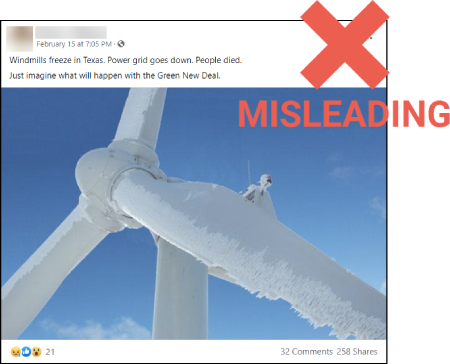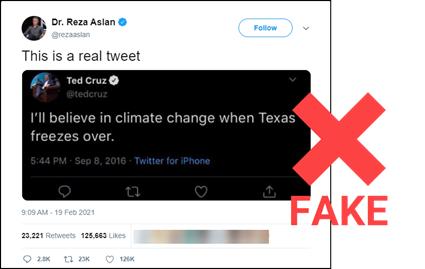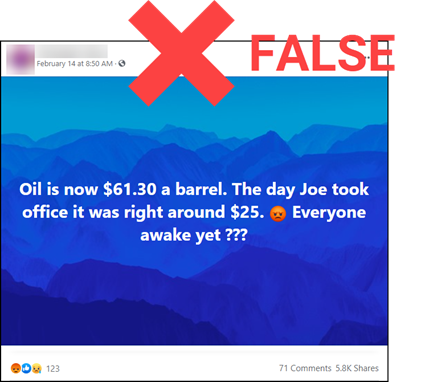GSAN: Texas rumors | Granting fresh starts | Media literacy test?
Subscribe to our free weekly newsletter for the general public Get Smart About News.
|
|
Learn about news literacy this week Texas rumors | Granting fresh starts | Media literacy test? |
|
Viral rumor rundown  NO: Frozen wind turbines were not the primary cause of the recent power outages in Texas. YES: Texas mostly relies on natural gas for power and heat. YES: Wind energy comprises only 10 percent of the power in the state generated during the winter, according to energy experts. YES: All sources of power in Texas — including natural gas, coal and nuclear energy in addition to renewable sources like wind and solar — were affected by a record stretch of cold temperatures, with freezing components causing shutdowns in operations and supply chains.  NO: Texas Republican Sen. Ted Cruz did not tweet in 2016 that he’ll “believe in climate change when Texas freezes over.” YES: That’s an image of a fake tweet.  NO: The price of crude oil was not $25 a barrel on Jan. 20, 2021, when President Joe Biden took office. YES: Crude oil was more than $53 a barrel on Biden’s Inauguration Day. YES: The price of oil was $59.47 when this post was published. |
|
★ NewsLit Picks Featured “Who Deserves to Have Their Past Mistakes ‘Forgotten’?” (Rachael Allen, Slate). Quick Picks “Olivia Munn, Awkwafina and More Celebrities Call for Action Amid Rise in Attacks Against Asian Americans” (Antonio Ferme, Variety).
Opinion: “Don’t Go Down the Rabbit Hole” (Charlie Warzel, The New York Times).
Opinion: “Why using Facebook and YouTube should require a media literacy test” (Mark Sullivan, Fast Company).
“Accountability suffers as newspaper closures grow in SC, nation” (Glenn Smith and Tony Bartelme, The Post and Courier).
|
|
Thanks for reading! Your weekly issue of Get Smart About News is created by Peter Adams (@PeterD_Adams), Suzannah Gonzales and Hannah Covington (@HannahCov) of the News Literacy Project. It is edited by NLP’s Mary Kane (@marykkane). |
|

